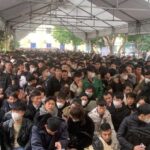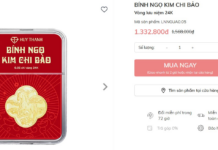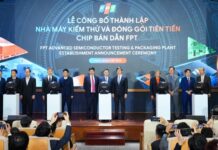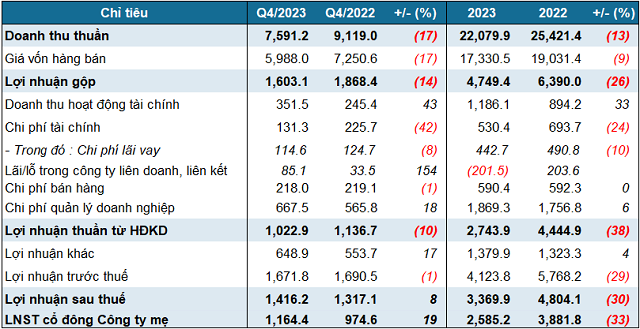According to information from the Overseas Labor Center (Ministry of Labor, Invalids and Social Affairs), from March 5 to August 6, 2024, this unit coordinated with the Korea Human Resource Development Agency (HRD Korea) to organize a Korean language test and skills assessment for 44,983 workers registered to work in Korea.
ENHANCING MEASURES TO CURB FRAUD
This exam had the highest number of registered workers since the Korean Government’s Employment Permit System (EPS) program implemented a computer-based Korean language test. The exam took place over the longest period since Vietnam and Korea signed the EPS Memorandum of Understanding.
In this selection round, Korea announced a recruitment quota of 15,734 people, including 11,246 in manufacturing; 200 in construction; 895 in agriculture; and 3,033 in fisheries.
Given the high number of registered workers and only four Korean language test centers in Hanoi (1), Danang (2), and Ho Chi Minh City (1), the Overseas Labor Center proposed that HRD Korea install and operate new computer-based test centers for the first round of 2024.
Specifically, a new test center with a capacity of 50 computers was installed in Hanoi. Simultaneously, they coordinated with Hong Duc University in Thanh Hoa province to renovate two existing computer labs to meet EPS-Topkik standards, each equipped with 70 computers, exclusively for the first 2024 Korean language test.
As a result, there were seven computer-based Korean language test centers in 2024, compared to four in previous years. The timely addition of test centers supported workers from the North Central and Red River Delta regions, eliminating the need to travel to Danang or Ho Chi Minh City to take the Korean language test. This saved over 10,000 workers travel, accommodation, and transportation costs.
Moreover, this exam cycle implemented enhanced security measures to prevent fraud, including the first-time use of citizen identity card readers for biometric verification.
During the information verification process, the workers’ identity cards were scanned, and the system provided their information, comparing and matching their faces with the data in the chip. Any discrepancies or cases of proxy test-taking were immediately flagged for further investigation.
The workers were also required to register for electronic identification level 2 to verify their information during the exam, preventing the use of fake documents.
These measures, a first for Korean language tests and skills assessments, are modern technological solutions aligned with the Government’s and the Ministry of Public Security’s multi-year plan to leverage the National Population Database.
NO NEW KOREAN LANGUAGE TESTS IN 2024
With the above measures in place, the Korean language tests and skills assessments were conducted seriously, objectively, fairly, and transparently, promptly detecting and handling any negative incidents.
Twenty workers were caught engaging in cheating or proxy test-taking during the Korean language test and skills assessment. These individuals will be banned from participating in the EPS program for four years.
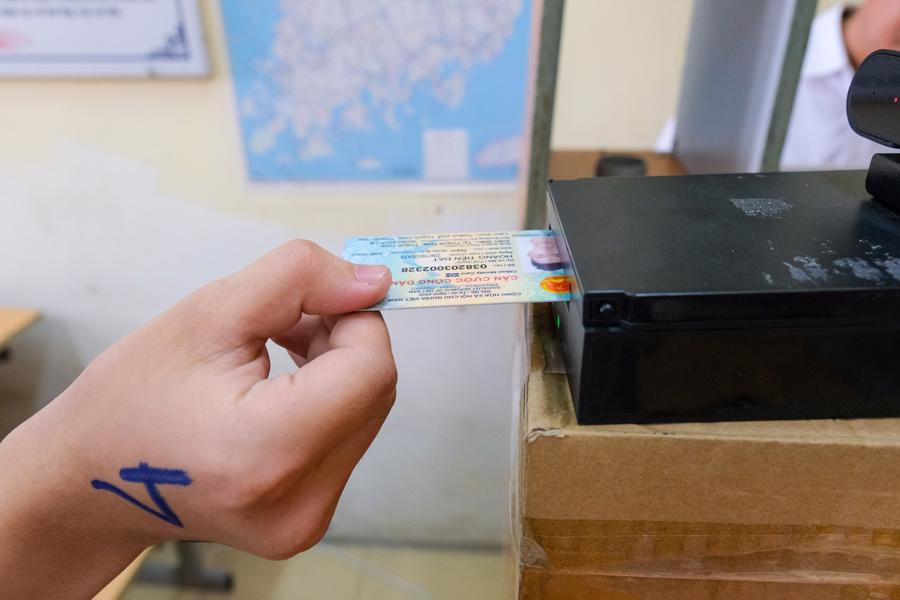
According to the Overseas Labor Center, passing the Korean language test and skills assessment is a necessary condition for submitting applications to Korean employers, but it does not guarantee employment in Korea.
Due to information security and the random selection process, no individual or organization can influence this procedure. Workers should be cautious about fraudulent schemes promising early selection by employers or expedited departure.
After submitting their applications, workers should continue their regular work and daily routines, avoiding the mindset of anxiously awaiting departure, which could make them vulnerable to exploitation by ill-intentioned individuals.
In the latter half of 2024, the Center will focus on expediting the submission of applications for the successful candidates from the recent exam, promptly introducing them to Korean employers, and increasing the chances of selection for Vietnamese workers. Thus far, 15,367 workers have been selected.
According to HRD Korea, from now until the end of 2024, Korea will not organize any new Korean language tests.
Workers intending to register for employment in Korea under the EPS program should carefully study the process, regulations, and specific information about the program. Based on this understanding, they should devise a plan and allocate time for learning the Korean language accordingly.
The unit also advises workers to maintain their current employment while studying Korean, such as taking classes after work hours or utilizing free online resources like websites and YouTube channels offering Korean language lessons.
Particularly, workers should be cautious when registering for Korean language centers lacking credibility or providing unclear and opaque information about the EPS program, such as guaranteed passing, expedited departure assistance, or high tuition fees.
The 2024 Korean language test was organized based on the agreement between the Ministry of Labor, Invalids, and Social Affairs of Vietnam and the Ministry of Employment and Labor of Korea. According to the Memorandum of Understanding between the two ministries, the Overseas Labor Center is the only agency authorized to dispatch Vietnamese workers to Korea under the EPS program.
Participating in the program, workers only need to pay for Korean language testing (equivalent to 28 USD) and dispatch fees when hired by a Korean employer (including administrative costs, airfare, visa fees, and orientation training, equivalent to 630 USD). Additionally, they are required to deposit VND 100 million as a bond before departure.
Competing to submit Korean labor documents
Over the past five days, Nghệ An has received 6,500 applications for the first round of the 2024 Korean language test, nearly doubling last year’s number of 3,700 candidates.

